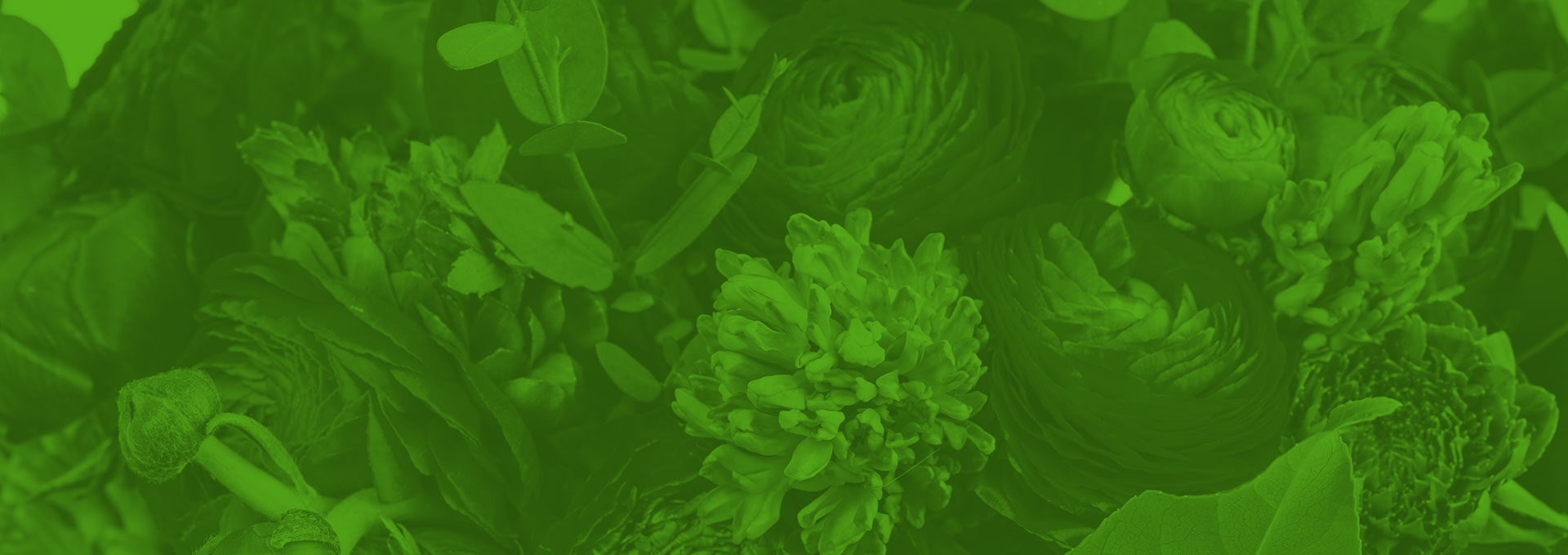Environmental sustainability is the new, trendy topic in business – but what is it and how can it help your business? By definition, sustainability simply means “the ability to be maintained at a certain rate or level.” In reference to the environment, this means incorporating practices into your business that do not directly or inadvertently harm the Earth or decrease the abundance of natural resources. A sustainable business is one that consumes less and reuses more. The convenient benefit for you, the business owner, is that eliminating waste and cutting down on consumption is good for your bottom line, both attracting customers and saving money on expenses. Here are a few simple ways that your floral business can begin on the journey to become more sustainable.
Source Local
The biggest contributing factor to the carbon footprint of a florist can be attributed to the water, energy, and gas spent growing and transporting flowers from the farm to the customer. A sustainable florist should choose to buy flowers that are grown without the use of high energy greenhouses and transported shorter distances. This means selecting a local grower that farms seasonal flowers to reduce energy costs associated with shipping and refrigeration. In seasons where flowers must be imported, select Fair Trade, flowers with environmental certifications such as FlorVerde. To learn more about the carbon footprint of imported flowers, look here.
Reuse Vases
Whether your business uses plastic or glass vases, or another medium to sell flower arrangements to customers, these containers can easily be reused. Sustainable florists can implement vase recycling programs where consumers who return vases get a small discount on their next purchase. Initiatives like this one reduce waste, save money on purchasing of new vases, and keep customers coming back to buy more flowers. To be even more sustainable, select vases that can be continuously recycled in the instance that customers fail to return the vases to you. This means substituting plastic for glass, which can be recycled an unlimited number of times in comparison to the 7-9 recycling cycles for plastics.
Eliminate Floral Foam
Green ‘floral foam’ is commonplace in many flower shops to create sturdy flower arrangements, however, the foam is harmful to both the environment and customers and employees who interact with it. This is because the foam is a known carcinogen. Additionally, the foam, made by reacting phenol with formaldehyde, is essentially a petroleum-based plastic product that does not fully degrade over time and cannot be composted. Concerns arise over the potential toxic effects disposing of the foam in landfills or down the drain may have on the environment. Many sustainable alternatives such as chicken wire exist, so ditch floral foam altogether to protect both the planet and your customers and employees.
Reduce Energy Use
Refrigerating flowers is a key component of keeping them looking fresh for longer, however, this refrigeration has high energy costs and contributes to the carbon footprint associated with flowers. A simple way to both reduce energy consumption and the energy bill is to switch to energy efficient appliances such as made by ENERGY STAR. In addition, many floral refrigerators have lights inside to show off flowers to customers. Using LED lights, which are brighter and more energy efficient, will better display flowers while simultaneously cutting costs. These lights can be used in refrigerators and in the retail space. If the refrigerators are already cooling flowers – why blast the AC? Use this opportunity to become more sustainable by lowering AC usage, especially at night.
Compost
The benefit of selling flowers, is that the product itself is naturally biodegradable. One method of being a sustainable florist is to repurpose all unused organic material with the compost bin. Recycle leftover arrangements, floral cuttings, and flowers that may be too damaged or imperfect for retail. If you are a florist who grows your own flowers, use this compost as a humus fertilizer to nourish your next batch of flowers. If you only purchase from a grower, offer your floral compost as fertilizer to your grower, local farms, or to your employees for use in their own personal gardens. Reusing flowers to grow more flowers is the definition of a sustainable business practice.




